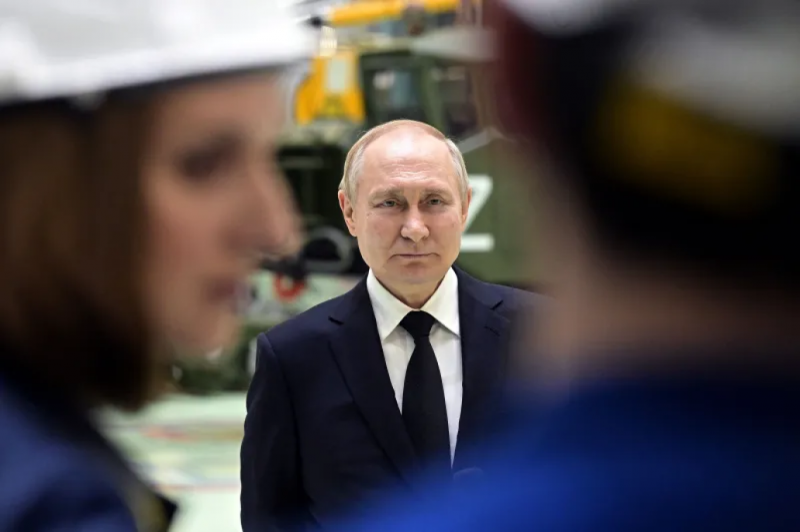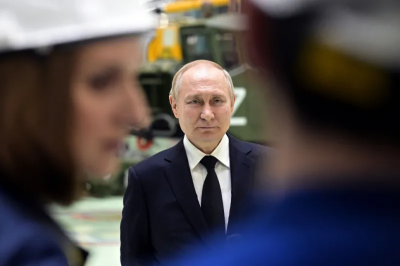The arrest warrant issued recently by the International Criminal Court's preliminary chamber against Russian President Vladimir Putin and the Russian Presidential Commissioner for Children's Rights Maria Lvova-Belova is a significant development concerning the Ukrainian war. However, it may be even more crucial regarding the sizes and red lines in an era considered by many to be the final years of American unipolarity.
The charges against Putin and the commissioner relate to their supposed and direct roles in the illegal deportation of thousands of children from Ukrainian territories occupied by Russian forces to the interior of Russia. According to Ukrainian President Volodymyr Zelensky, the actual number of children deported from orphanages and care homes since February 24, 2022, could be much higher than 16,000. Various reports indicate that these children will be put up for adoption or subjected to rehabilitation.
There are several points worth highlighting:
First, Moscow, which is accused by the West of disregarding judicial independence and the separation of powers, does not recognize the jurisdiction of this court, nor its credibility or neutrality. This was evident from the initial Russian reactions following the issuance of the warrant. Dmitry Peskov, the Kremlin spokesperson, stated that Russia does not recognize the court's jurisdiction and considers its decisions null and legally rejected. Similarly, Maria Zakharova, the Russian Foreign Ministry spokesperson, echoed this sentiment, stating that the court's decisions "are meaningless for our country, including from a legal perspective."
Russia's UN representative, Vasily Nebenzya, took this further by declaring that the "biased, politicized, incompetent court, which is ready to exercise fake justice as a puppet of the West, has demonstrated its inferiority." He continued his attack by saying, "It is particularly ironic that legally insignificant decisions (such as the arrest warrant against Putin) were announced on the eve of the 20th anniversary of the illegal American invasion of Iraq." He added that "the ICC had jurisdiction but did nothing to bring accountable perpetrators to justice."
Second, legal wars, regardless of whether the ICC is entirely politically independent or not, remain one of the political pressure tools accompanying military escalation and economic sanctions. Currently, Russian leadership believes it is facing a war from NATO countries, including expanding its operational zone to Russia's borders following Ukraine's annexation. This serves as the national justification for a preemptive defensive war that the Kremlin presents to the Russian people, especially to those who fundamentally do not believe in ethnic, linguistic, or cultural differences with Ukraine.
Third, the issue of childhood threats and harm to children shakes the human conscience. Thus, justifying action to protect them from harm or hold the responsible parties accountable becomes essential in any political confrontation. However, the problem here with international judicial action in defense of Ukrainian children lies in the disparity in treatment between this case and others. Currently, the protections afforded to Ukrainian children are not extended to Syrian children, despite the world's witnessed tragedies of hundreds—if not thousands—who perished from gas or under barrel bombing or drowned in the sea. Furthermore, in the case of Syrian children, I argue that President Putin, his diplomats, and his officers deserve accountability at the very least. Regarding threats to children and their abuse in other regions of the world, we have not heard of any of those involved in other child crimes, such as killing, exploitation, or forced conscription, facing any form of international justice.
Fourthly, does the principle of justice get fragmented? Do great powers serve this principle when rights are selective, justice is arbitrary, and the application of sanctions is mood-driven and self-serving? The court that issued the arrest warrant against President Putin and his children’s affairs commissioner has undoubtedly fulfilled its duty, but is it—and the global powers supporting it—actually in a position to implement its will and realize what it sees as right... or is the scenario we should expect limited to tightening and escalation leading to concessions? The Western powers are well aware of the nature of the current Russian leadership and have witnessed multiple instances of its stubbornness. Therefore, if the judicial arrest is merely a step for bargaining, these Western leaders should temper their optimism and avoid repeating past mistakes.
The reality is that Vladimir Putin's situation and his capacity to influence the global security climate cannot be compared to the situations of other politicians and leaders who have been threatened, pursued, or judicially sanctioned, such as the late Libyan President Muammar Gaddafi, former Sudanese President Omar al-Bashir, former Chadian President Hissène Habré, and former Serbian President Slobodan Milošević.
Vladimir Putin represents a different case, and Russia is a different case. Thus, the attempt to single out Moscow amidst the tumultuous international atmosphere and rising concerns from Ukraine in the West to Taiwan in the East may not yield the desired results. If we look at what the alignments and reactions might entail, we find that everyone is either in a dilemma or facing issues that limit their maneuverability.
Indeed, there are complications currently facing all major European countries. French President Emmanuel Macron is in an uncomfortable position faced with a street experienced in loud and tenacious protests. The conservative government in Britain is paying daily for its "dogmatism," escaping from confrontation to strikes, and from one crisis to another scandal. The coalition government in Germany is far from ideal, despite emerging from the unsettling winter nightmare with minimal losses and avoiding greater embarrassment over the arms supply to Ukraine. Italy, meanwhile, is going through heavy days and challenges as it experiences the taste of new fascist governance.
Then, there are the two major powers, China and the United States. Chinese President Xi Jinping will soon meet Putin in Moscow, and the two leaders have much to discuss. Meanwhile, the ever-cautious Washington, regarding the Chinese challenge, is expanding its nuclear threat radius with Beijing to include Australia.
Based on all of this... can Vladimir Putin's reaction be underestimated?




